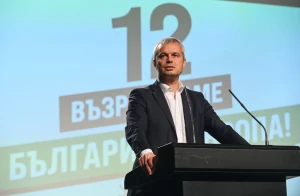
Despite Beijing's official statements about a "peace plan" to end Russia's war on Ukraine, the truth is evident
As the proverb goes, you can’t shorten your feet when your shoes are too small
The Chinese plan vaguely interprets the concept of sovereignty and inviolability of borders, with only a passing remark on the issue...
It is evident that Xi Jinping seeks to obscure the consequences of Russia's full-scale invasion of Ukrainian territory and occupation of almost 20 percent of its land. The plan seems to be more about satisfying Putin's ambitions to "end the war" by annexing Crimea and the "LDPR," as well as the captured South of Ukraine, where Russia has already laid claim to "sovereignty" over these territories through the State Duma.
Beijing does not want to sour its relationship with the European Union, given the Union's substantial imports of Chinese goods. However, it is clear that China's specific peacekeeping efforts are unlikely to gain widespread acceptance. Instead, China is betting on those who would like to end the war by any means necessary, even at Ukraine's expense. Among these individuals is Hungarian Prime Minister Viktor Orbán, who has effectively aligned himself with the "axis of evil," risking ending up on the losing side of a war epic for the third time in a century. French leader Emmanuel Macron is also playing into Beijing's hands, particularly given China's ongoing confrontation with the United States. His "dubious connections" with the Kremlin dictator, frequent conversations with Moscow, and recent visit to the People's Republic of China suggest that the master of the Elysee Palace is not in a hurry to end the war, even if it means sacrificing foreign (read: Ukrainian) territories. Macron has his own electoral goals to consider, as protests over pension reform have damaged the government's popularity. As a result, he is trying to compensate for his reputational losses on the foreign policy front. This includes his anti-Americanism (which is, after all, traditional for France) and his ambition to become a center of influence for Europe. These ambitions have not gone unnoticed in Berlin, and Annalena Baerbock has reportedly voiced her opinions to the Parisian monsieur.
“Macron has his own electoral goals to consider, as protests over pension reform have damaged the government's popularity. As a result, he is trying to compensate for his reputational losses on the foreign policy front”
Macron also had some pleasing news for China, stating that France does not consider Taiwan their business, and the supposed war launched by China against the island is not their war either. Xi reportedly welcomed such rhetoric, and the Chinese Communist regime's diplomacy decided it was time to "clarify" their understanding of sovereignty and territorial integrity.
The ambassador of the People's Republic of China in Paris, Lu Shaye, caused a major scandal by declaring that former Soviet countries have no status in international law. In other words, he began looking for the Moon at the bottom of the sea. Thirty years after Ukraine, the Baltic countries, and Kazakhstan were recognized as international entities by the world, including China, this revisionist Shaye denies them the right to statehood!
“The ambassador of the People's Republic of China in Paris, Lu Shaye, caused a major scandal by declaring that former Soviet countries have no status in international law. In other words, he began looking for the Moon at the bottom of the sea. Thirty years after Ukraine, the Baltic countries, and Kazakhstan were recognized as international entities by the world, including China, this revisionist Shaye denies them the right to statehood!”
It would be naive to think that the Chinese diplomat's seemingly innocent gesture in response to Macron's "Taiwanese" remarks was genuine. In reality, Shaye merely echoed Putin's absurd views that he employed to justify the war against Ukraine. Putin has been known to use similar rhetoric throughout his tenure as Russia's leader, where he has portrayed Ukraine as either a failed state, an invention of the Austrian General Staff, or a product of Lenin's creation.
Shaye's statement is not a cause but rather a pretext. China's so-called "peace plan," which it is currently trying to entice not only France but also Hungary and now Italy, was co-authored with Moscow. The Kremlin is now utilizing its agents of influence, such as Brazil's Lula, France's Marine Le Pen, and two dozen Republican senators in the USA, to bring these issues to the forefront of the world's agenda.
Putin knows he is losing the war, and he wants to avoid the consequences of a complete defeat in Ukraine, a possible civil war in Russia, criminal prosecution for war crimes and genocide, and the collapse of his semi-empire. He wants "peace," but only on his terms.
However, peace will come, not according to the Chinese-Russian plan, but according to Ukraine's plan, and with all the repercussions that the aggressor seeks to avoid. This will include Ukraine's accession to NATO and the European Union, which will fundamentally alter the power dynamic in these organizations.
As for China, after Ukraine's victory, it will face the consequences of supporting an oppressive regime that violates human rights, engages in aggression against its neighbors, and disrupts world markets. It is not unlikely that China will face severe sanctions, which, combined with Russia's troubles, could lead to its collapse.
About the author. Ihor Hulyk, journalist, editor-in-chief of Espreso Zahid.
The editors do not always share the opinions expressed by the blog authors.
- News












































